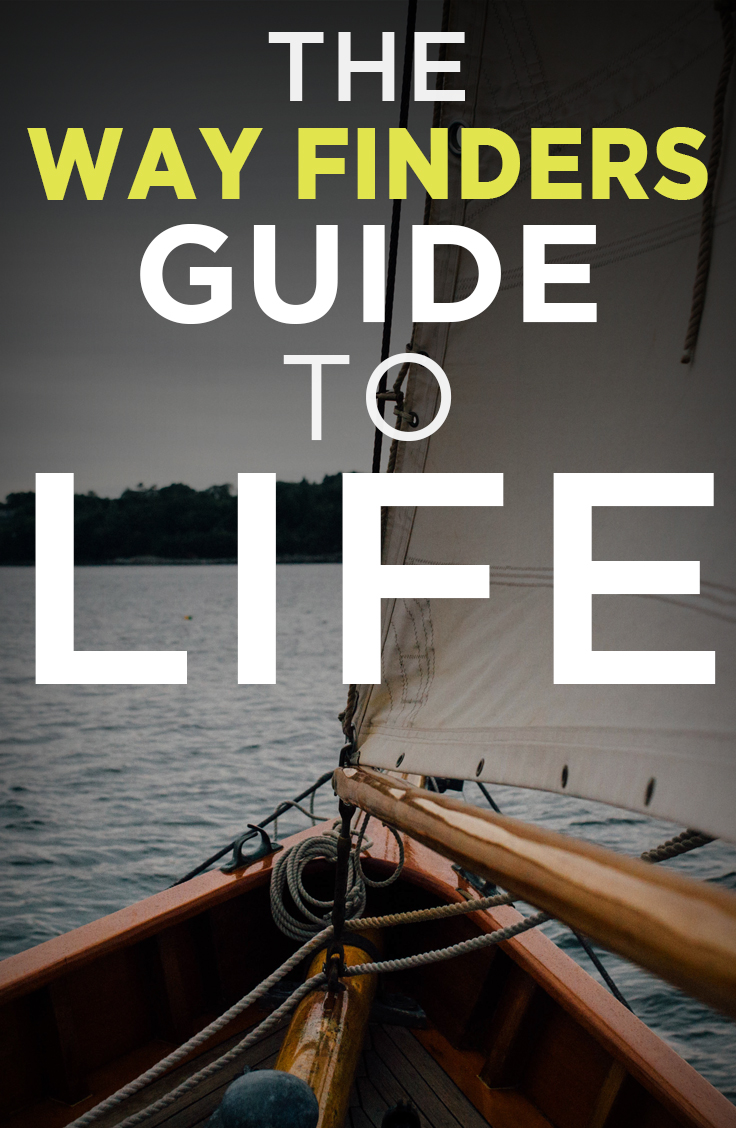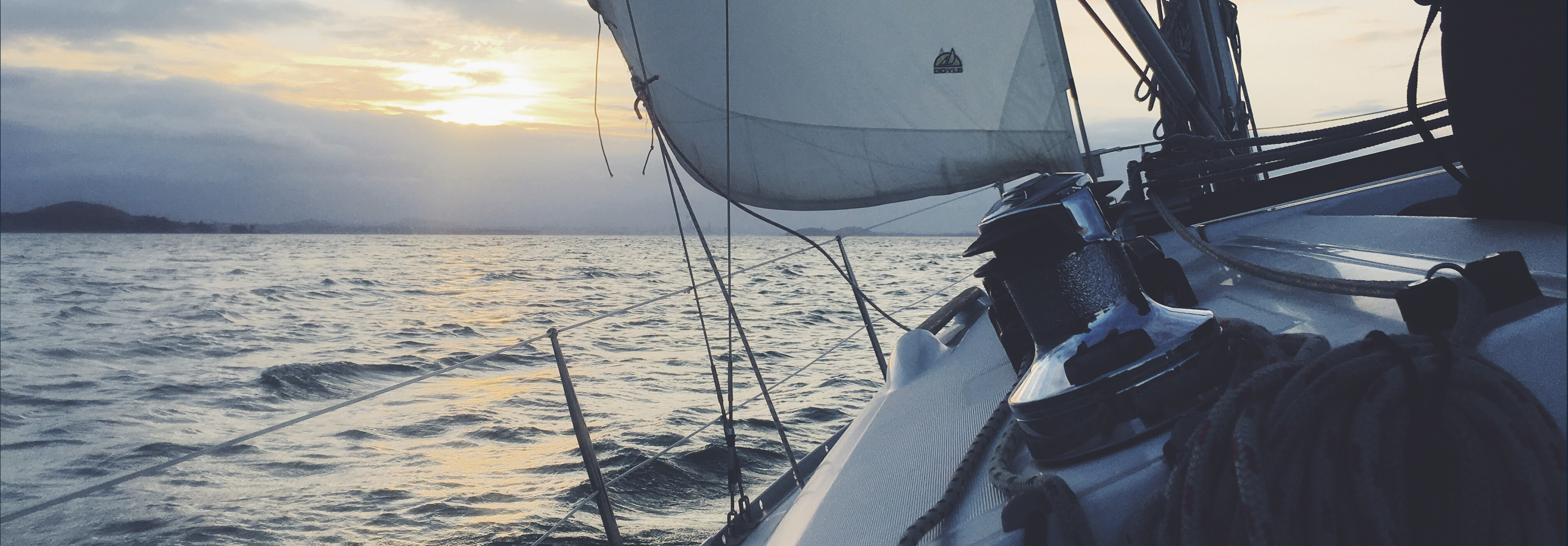 Being a way finder. I had never heard of such a thing until I began to fall in love with the ocean. If I could spend the rest of my days doing one thing it would be to sail the ocean from shore to shore. Finding my way with no roads to limit me, stay or leave as I please with no schedule to order my days. But not everyone feels this way, because we all navigate our journey differently.
Being a way finder. I had never heard of such a thing until I began to fall in love with the ocean. If I could spend the rest of my days doing one thing it would be to sail the ocean from shore to shore. Finding my way with no roads to limit me, stay or leave as I please with no schedule to order my days. But not everyone feels this way, because we all navigate our journey differently.
I believe being a way finder is more than about navigation at sea. It is a metaphor about a personal journey. We are making decisions by the second that determine the trajectory upon which we set our life.
I had never planned a course for my life. If someone handed me a map and said “Ok, plan your course,” I would crumple it up, toss it over my shoulder, and say “Where’s the fun in that?” Then I’d trim the sail and go head long into whatever weather came, whether it be fair or fowl.
I thought by doing this I was taking control of my life. I was free of obligation. Free to change directions as I pleased. What felt adventurous became mysterious, even romantic, but soon I became capricious then careless, and finally meaningless. My course began to give way to the wishes of the world and its waves. The whims of life became my master, and we all know that it will not treat you fairly. Other people progressed, while I was rocking in their wake. I had given up the ownership of my vessel. I needed to find my way through way finding.
The ancient Polynesians could way find without a modern compass simply by remembering where they came from, knowing where they where at, and focusing on their destination. They did this by using the sun, stars, wind, and ocean current beneath their feet.
The same principles apply to ourselves when navigating our own personal journeys.
Here is the way finder’s guide to life.

Establish yourself as owner and captain of your life.
I know this sounds simple, but some of the most simple things have the deepest meaning and value. Nothing in life can truly be achieved without ownership. Becoming an adult is the very act of taking full ownership of your life. Just like owning your own boat, it is an exciting experience to begin but you find out shortly that it requires hard work, responsibility, and a constant thirst for more knowledge.
With owning your vessel comes maintenance. The older you get the more this becomes vital. There are many other things in life that steal ownership other than people, like following a life of pleasures. While pleasures are nice for a season, they don’t hold your own best interests. Pleasure only wants more of itself, and its thirst can never be quenched. The more you indulge in them, the more they take over ownership. Soon you will lose your way at the helm, with your ship falling apart, heading for storm after storm. A course of this nature will probably require a call for help, or risk drowning at sea.
Know where you came from, and know where you are going.
This is how the ancient Polynesians kept their course in the Pacific. They were able to have a constant awareness of their location in the ocean without any modern equipment. By learning from the past and focusing on the future, we can do the same with our lives. You know the old saying. Unless we study history, we are doomed to repeat it.
By being a way finder, we can evaluate what is worth holding onto in terms of our character and goals, and then decide who we want to be. We then are able to better assess who we are as individuals, determine how we fit into society, feel more excitement about our future plans, and know how to get there.
Respect fear but don’t let it detour you.
I fear the ocean just as I fear many things in life. From its great wild expanse, to the unpredictable nature of its behavior, to the gigantic beasts that lurk in its depths. This very nature is also what draws me to it and demands my respect and appreciation for its beauty. Fear is healthy. It’s what keeps us safe. But we can’t let it determine our future, or stop us from moving forward. We just have to be prepared and have the knowledge and experience to deal with the next level.
Be aware of the constants.
Some things will never change and never will, at least while you’re alive. A way finder uses things like stars at night, and the sun during the day to determine one’s own location and direction. Like a foundation to a well-built house, constants are where you begin your journey, and what keeps you on track when you waiver. They will act as a guide when everything around you seems to change without warning.
The best constant to help you hold your course is values. Determine what they are and hold to them. Practice them in your daily life so much that it becomes instinct to know what and where they are. In doing so, you become a constant for others to turn to when they are lost, and that is something this world needs.
Feel the current and swells.
When the stars aren’t visible and the sun is blocked by clouds, a way finder will dip their feet or hands in the water to feel the temperature, flow, and the rise and fall of the ocean. Constantly moving, like society, you quickly learn that it is something we can never control. So don’t fight it; learn from it.
Sometimes it is not clear where our constants are. It becomes difficult to know our location and what direction to head. This is when we rely on society and community. Expose yourself to those closest to you. Try to see them for who they are. Get to know them better, and they will in turn show you who you are, where you should be going, and what you should be more like. Don’t be afraid to change course. Sometimes we become so focused on what we see as important that we don’t realize that we are off course.
Harness the wind.
I like to see the wind as our personal mood. While it is unpredictable, it is what propels us. It motivates us, leaves us stranded in a sad funk, or blows with furious torrents. It’s consistently inconsistent. Knowing this prepares us for its highs and lows of life. We begin to lose fear of it, and learn when to pull down the sails and let it blow over, or when to trim the sails and ride it into the horizon.
Sometimes our mood, just like the wind, doesn’t work for us. Often it outright goes against us and conflicts with our plans, tasks, and responsibilities. This is when a way finder uses the skills they have honed and the equipment they have maintained to sail what is called windward. You use your keel or (will power) to counter the force of the wind and zig zag toward your destination. Progress won’t be fast, but as long as you keep your eye on your constants, you’ll get there eventually.
Plot your own course, not that of others.
Being a way finder is about quiet confidence in the ability to navigate your own life. Don’t let it go to your head and think that you have the right to plot someone else’s course. You don’t want to become a way finder pirate, and steal someone else’s ownership. It doesn’t look good on you, and it definitely doesn’t help anyone else. If someone wishes to follow in your wake, welcome them. Give assistance when requested, but remember that we all have our own journeys that we must follow. We each must accept responsibility for our own course and never blame others for leading us astray. If we choose to follow, it is on us as followers.
Enjoy the ride.
Take it all in. The struggles, the pleasure, the freedom, the beauty, and everything the adventure reveals to us. We must have a destination, but the journey is what it’s all about. That is what we reflect on, learn from, and the very thing that calls to us when we reach our destinations.